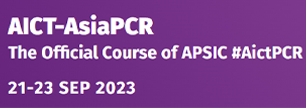


- NEWS
-
-
Scientific LibraryAcute Coronary Syndrom ASCVD Prevention Bifurcation Stenting Cardio-Oncology Congestive Heart Failure DAPT Duration Drug Coated Balloon Fractional Flow ReserveCases VideosE-LearningIndustry Insights
- LIVE REVIEW
-
 Article Link
Article Link

Short Duration of DAPT Versus De-Escalation After Percutaneous Coronary Intervention for Acute Coronary Syndromes
C Laudani, A Greco,G Occhipinti et al.
KEYWORDS
ACS; DAPT duration; short DAPT vs. De-Esscalation; NACE;
OBJECTIVES - The aim of this study was to compare short dual antiplatelet therapy (DAPT) and de-escalation in a network meta-analysis using standard DAPT as common comparator.
BACKGROUND - In patients with acute coronary syndrome (ACS) undergoing percutaneous coronary intervention (PCI), shortening DAPT and de-escalating to a lower potency regimen mitigate bleeding risk. These strategies have never been randomly compared.
METHODS - Randomized trials of DAPT modulation strategies in patients with ACS undergoing PCI were identified. All-cause death was the primary outcome. Secondary outcomes included net adverse cardiovascular events (NACE), major adverse cardiovascular events, and their components. Frequentist and Bayesian network meta-analyses were conducted. Treatments were ranked on the basis of posterior probability. Sensitivity analyses were performed to explore sources of heterogeneity.
RESULTS - Twenty-nine studies encompassing 50,602 patients were included. The transitivity assumption was fulfilled. In the frequentist indirect comparison, the risk ratio (RR) for all-cause death was 0.98 (95% CI: 0.68-1.43). De-escalation reduced the risk for NACE (RR: 0.87; 95% CI: 0.70-0.94) and increased major bleeding (RR: 1.54; 95% CI: 1.07-2.21). These results were consistent in the Bayesian meta-analysis. De-escalation displayed a >95% probability to rank first for NACE, myocardial infarction, stroke, stent thrombosis, and minor bleeding, while short DAPT ranked first for major bleeding. These findings were consistent in node-split and multiple sensitivity analyses.
CONCLUSIONS - In patients with ACS undergoing PCI, there was no difference in all-cause death between short DAPT and de-escalation. De-escalation reduced the risk for NACE, while short DAPT decreased major bleeding. These data characterize 2 contemporary strategies to personalize DAPT on the basis of treatment objectives and risk profile.




















